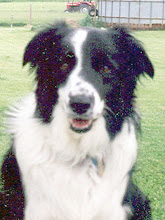Saturday, March 10, 2018
Conversations in the Lamb Pen
We were breezing through lambing season until Ewe #11 gave birth to twins.
The black ewe bellowed in the paddock while her newborn twin lambs shivered in the afternoon breeze. I scooped them up and brought them into the barn and out of the wind.
Unlike the other ewes, she did not follow me and her babies.
She did, though, seem happy to follow a flake of alfalfa hay into the barn--until I shut the door, and she found herself locked in a stall with her two lambs.
Why are you leaving me with them? she screamed.
Sometimes ewes reject their lambs. A ewe with triplets may push one aside. A ewe disturbed during birthing and not given time to bond may reject a lamb. And, as was in the case with this ewe, a first-time mom might just be beyond nervous.
I'm a fan of no-fuss plants and animals. I don't grow roses. My Halfinger horses seem to get fat on air. My Katahdin and Dorper sheep thrive on grass and rarely need assistance with lambing or living.
But I wasn't going to give up on two healthy lambs. I'd first make sure they got antibody-rich colostrum from their mother. To do that, I caught and haltered the ewe, then confirmed that she was making milk. I next directed the lambs to the udder.
She gave me a wild-eyed look.
"You'll warm up to them," I told her.
The few times I've had a ewe reject a lamb, I've had success holding the ewe and allowing the lamb to nurse frequently for the first 24-48 hours. After that, the lamb smells like her mom, and the two bond. It's time consuming, but less so than raising lambs on bottles.
"I'm not sure I'd be wild about taking on twins," I tell the ewe. "But you only have to do this for 90 days, and then you can join the Working Group (the sheep I use for dog training)."
She responds by leaping into me.
When I return to her pen two hours later, I bring a stool. She brings an attitude. After catching and haltering her, I sit on the stool as the lambs nurse.
"You only have to do this for 60 days," I say. "You'll get the best food. You can probably talk some SuperMom into watching them while you nap."
She struggles to escape--and I hold on, and listen to song after song on the radio as the minutes tick by.
During my third visit, it is dark and cold. I bring a stool and my phone. Might as well catch up on the news while I'm holding the ewe. Instead, I get sucked into Facebook and all the photos of lambs nursing from their patient moms.
"Why can't you be like them," I say, showing her the photos.
Sometime after my third visit, another ewe gives birth to twins. After settling them into an adjoining stall, I resume my position on the stool.
"Look at them," I tell the black ewe. "She's standing so quietly while her babies nurse." The ewe still struggles to escape. I am getting better at hanging on.
The ewe is less cantankerous in the morning--but still is not going to stand and allow her babies to nurse.
"Never have I dreamed of spending the pre-dawn hours in a freezing sheep stall," I tell the ewe. Though it's really quite pleasant. The other ewes and horses are munching hay; the cat is perched above me; and snow is falling outside. When I scratch the lambs rumps, they wag their tails and nurse more enthusiastically.
"You have really bad breath," I say while holding her during the dawn feeding. She happily chews her cud.
When I return in the afternoon, she looks at me and stands still, allowing her babies to nurse. Apparently she's accepted them--or decided she'd rather nurse them than chat with me. And I'm okay with that.
Subscribe to:
Post Comments (Atom)















Maybe she was hoping for black lambs? Nice story!
ReplyDeleteThat crossed my mind. :-)
ReplyDelete